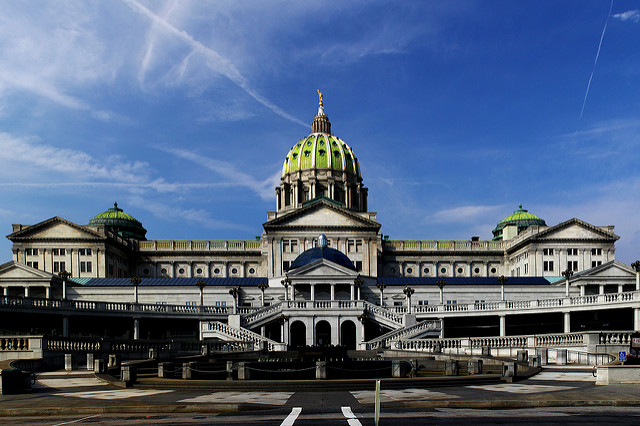Yesterday saw the Pennsylvania House of Representatives pass a piece of proposed legislation that would legalize online gambling and daily fantasy sports in hopes of raising up to $250 million a year in tax for the state.
Known as House Bill 2150, the measure was approved in the lower house on Tuesday by a vote of 114 to 85 and is now being sent to the Republican-controlled Pennsylvania Senate for consideration before this body breaks for its summer recess on July 1.
The proposed legislation, which would also need the signature of Democratic governor Tom Wolf to become law, was initially rejected by the Pennsylvania House Of Representatives last month due to it containing a component that would have permitted video gaming terminals throughout the state but pressure from numerous bricks-and-mortar casino operators led to this controversial element being removed.
As now written, the measure would allow the twelve land-based casino operators in Pennsylvania to partner with approved technology providers in order to offer online casino and poker games to those at least 18 years of age residing in the eastern state. In exchange, the casinos would be required to pay a one-off fee of $8 million for a five-year licence with renewals running at $250,000 while their partners would be charged $2 million up front followed $100,000 in five years’ time. Online operators would additionally be subject to a 16% revenue tax with 2% of this earmarked for economic development projects.
Another provision in the Pennsylvania House of Representatives legislation would permit the state’s six international airports including those in Philadelphia, Erie and Pittsburgh to offer mobile online gambling to passengers waiting to board aircraft. In return, each mobile licence would cost a one-time fee of $1 million while revenues would be taxed at 54% with 20% going to the venue.
Regarding daily fantasy sports, the proposed legislation would allow operators to apply for a 30-day licence from the Pennsylvania Gaming Control Board in exchange for paying a 5% tax calculated on their previous year’s adjusted revenues. From there, a five-year authorization would cost $50,000 or, for smaller entities, 7.5% of adjusted revenues for the previous calendar year unless the applicant is a casino operator in which case the higher amount would be required. Renewals would run at $5,000 while companies would moreover be required to initiate systems to verify that players are at least 18 years of age and located in the state.
The planned measure would additionally authorize the state’s international airports to offer slots to their ticketed passengers in exchange for a one-time fee set at $5 million for Philadelphia International Airport with Pittsburgh required to pay $2.5 million. A charge of $1 million would apply for the smaller airports in Erie, Harrisburg, Wilkes-Barre/Scranton and Lehigh Valley while revenues would be taxed at 34% with 14% going to the state.
Finally, House Bill 2150 would furthermore give casinos the privilege of operating up to 250 slots at any of the state’s ten off-track betting parlors. In exchange, operators would be required to pay $5 million to the Pennsylvania Gaming Control Board and agree to a 54% tax rate with 92% of this going to state before the remainder is split between the host county and municipality.



